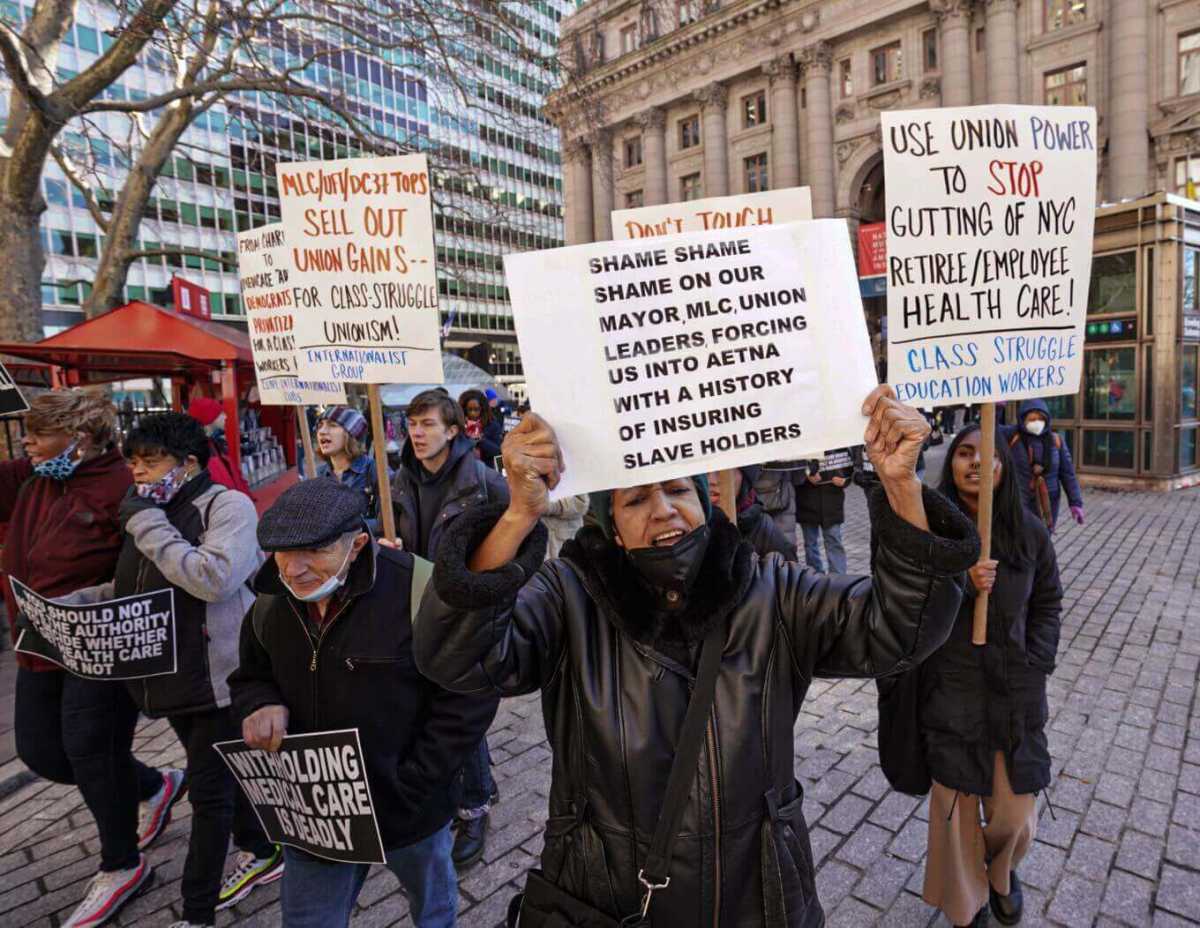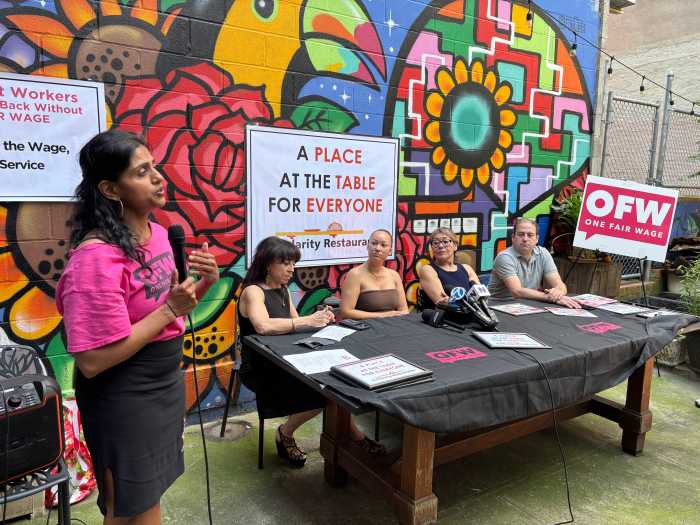Around 250,000 retired municipal workers will get to keep their current health care plans rather than be forced onto the Medicare Advantage plan, as a Manhattan judge ruled in favor of the former city employees who have long fought against the move.
While Mayor Eric Adams’ administration plans to appeal the Friday ruling, the news comes as a major victory for the retirees, along with their elderly or disabled dependents, who will continue receiving traditional Medicare, should the ruling stand.
Manhattan Supreme Court Justice Lyle Frank issued the Aug. 11 ruling, which says the city is “permanently enjoined from requiring any City retirees, and their dependents, from being removed from their current health insurance plan(s), and from being required to either enroll in an Aetna Medicare Advantage Plan or seek their own health coverage.”
Frank’s ruling found that the proposed switch, which dates back to the de Blasio Administration, would violate the guarantee for city workers to receive city-funded healthcare, which has long been achieved through a mix of Medicare and additional, supplemental insurance.
The plan would have switched the retired workers and their dependents to a privatized Medicare Advantage plan managed by Aetna, and would save the city around $600 million per year.
The head of the New York City Organization of Public Service Retirees hailed the ruling, and called on the mayor to halt his campaign to “harm senior citizens and the disabled.”
“The Court repeatedly found the City is on the wrong side of history, breaking several laws to implement this scheme which would harm the very people who built this City,” said Marianne Pizzitola. “If the Mayor wants to save the City money, he should live up to the promise made to us as we lived up to ours, and he should stop spending taxpayer dollars to harm senior citizens and the disabled.”
The proposal had the support of the Municipal Labor Committee, which agreed to the plan during negotiations that secured them increased salaries and benefits.
But switching to the privatized Aetna plan, according to Pizzitola, would have increased health care costs for retirees, and made it more difficult to get coverage for some health care procedures.
For their part, the mayor’s office vowed to appeal the decision in a statement following the ruling.
“We are extremely disappointed in this ruling, and intend to appeal. This Medicare Advantage plan, which was negotiated closely with and supported by the Municipal Labor Committee, would improve upon retirees’ current plans, including offering a lower deductible, a cap on out-of-pocket expenses, and new benefits, like transportation, fitness programs, and wellness incentives,” the statement reads. “In addition, it would save $600 million annually, especially critical at a time when we are already facing significant fiscal and economic challenges. This decision only creates confusion and uncertainty among our retirees.”
Local politicians hailed the ruling as a win for seniors.
“The hardworking and dedicated New York City retirees who helped build this city and kept it safe and running smoothly were promised specific healthcare benefits as part of their compensation package on the day they were hired,” said Brooklyn Council Member Justin Brannan. “For decades they worked for the greatest city in the world with the expectation that upon their retirement they would enjoy these promised benefits.”
“In June we sent a letter urging the Adams administration to protect current retiree healthcare while litigation ran its course,” added Council Member Lincoln Restler, also of Brooklyn. “I’m relieved that the judge has ruled all New York City retirees can maintain their current healthcare.”
Read more: Conservative NYC Lawmakers Calls for Accountability After Riot





























